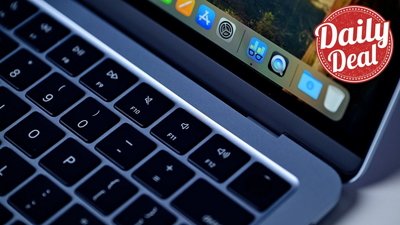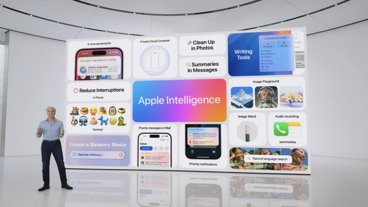The groundbreaking partnership aims to take on Apple's iPhone, along with other operating systems that span across multiple devices, including Google's Android and Microsoft's Windows Mobile. But Intel and Nokia said the MeeGo platform will extend beyond smartphones and will be flexible enough to scale to larger devices like full-fledged computers or in-car systems.
Renee James, Intel's vice president in charge of software, told The New York Times that although Android is "fantastic," it is also too "specific" and restrictive to run on a wide variety of devices, particularly more complex ones.
"I think it's important that there are alternatives that are truly open for innovation," James reportedly said.
Intel previously announced its Moblin operating system for low-cost notebooks running the company's low-power Atom processor. And Nokia's Maemo 5.0, first introduced last summer, was expected to play an integral role in the company's smartphones to come. The move would seem to signal the end of both platforms, though Nokia still intends to sell smartphones based on its Symbian platform.
Another interesting note by the Times: Since the platform will run on ARM-based processors (in addition to Atom), Intel will be lending support to an operating system that benefits one of its competitors. Apple has used ARM processors in its iPhone, and created a custom version of the Cortex-A9 chip, known as the Apple A4, for its recently announced iPad.
Nokia has not yet announced whether it will build any handsets or devices based on Intel's Atom processor. Both companies will keep their separate application stores: Intel's AppUp for netbooks, and Nokia's Ovi software store will remain, despite the partnership.
The first devices running MeeGo, including a new phone from Nokia, are expected to arrive later in 2010.
Nokia and Apple currently have a number of lawsuits directed at each other, making accusations of patent violations on both parties' behalves. As the iPhone has grown in popularity, Nokia has retained its status as the market leader, but has suffered significant losses at the hands of competitors.
 Katie Marsal
Katie Marsal






-m.jpg)






 Malcolm Owen
Malcolm Owen
 William Gallagher
William Gallagher

 Wesley Hilliard
Wesley Hilliard



 Christine McKee
Christine McKee



-m.jpg)




33 Comments
Two wrongs don't make a right.
two wrongs don't make a right.
Tee hee!
Depending on how good Windows 7 is this will be either the only competitor for Android left (for non apple consumer phones) or a total flop. If there is one platform why have 2 app stores? Will they charge developers twice for the same app?
If there is one platform why have 2 app stores?
What is wrong with expanded choice? Why not have dozens of places to get software?
What is wrong with expanded choice? Why not have dozens of places to get software?
The App Store is a demonstration as to why that isn't such a bright idea.
Think *outside* the Apple forums bubble.